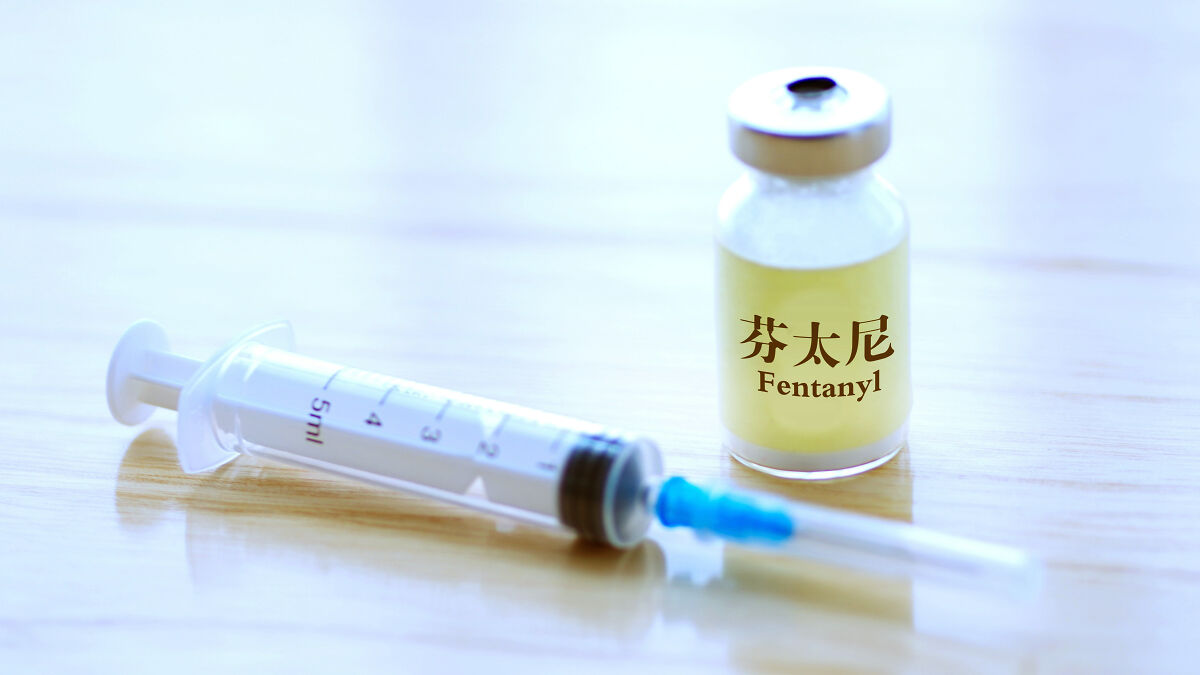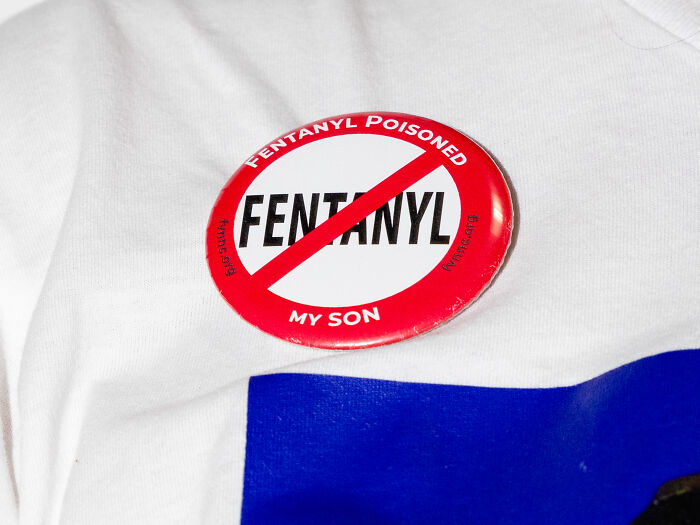President Donald Trump officially signed the HALT Fentanyl Act into law at the White House on Wednesday.
The legislation permanently designates all fentanyl substances, including chemically-altered versions that mimic the drug, as Schedule I drugs under the Controlled Substances Act.
It means they will be placed in the Drug Enforcement Administration’s (DEA) category for the most dangerous and highly restricted substances, and will be subject to longer prison sentences.
- President Trump signed the HALT Fentanyl Act, permanently classifying all fentanyl substances as Schedule I drugs with tougher penalties.
- Critics argue the Act repeats 'war on drugs' failures, urging health-based addiction solutions over punitive sentencing policies.
- After fentanyl analogues were criminalized in 2018, overdose deaths rose 60% to 107,941 by 2022, despite increased prosecutions.
- The law enforces mandatory minimum 10-year sentences for possession of 100+ grams fentanyl analogues, raising justice concerns.
Donald Trump signed the HALT Fentanyl Act into law
Image credits: The White House
The Trump administration argues that the legislation will deter drug cartels from making copycat drugs in a bid to escape harsh prosecution under the Controlled Substances Act.
But some critics have warned that instead of tackling the overdose crisis, the legislation risks repeating the past failures of the “war on drugs.”
They urge for more to be done to address the underlying causes of addiction and increase access to harm reduction tools, instead of focusing on punishment.
“Trump says he wants to keep Americans safe from fentanyl,” Drug Policy Alliance (DPA) wrote on X after the legislation was signed into law.
Trump says he wants to keep Americans safe from fentanyl. Yet instead of investing in health-based solutions that save lives, Trump cuts their funding & doubles down on punitive policies that put lives at risk. Share if you agree that Trump’s actions speak louder than his words. pic.twitter.com/5JqJmlmrAd
— Drug Policy Alliance (@DrugPolicyOrg) July 16, 2025
“Yet instead of investing in health-based solutions that save lives, Trump cuts their funding & doubles down on punitive policies that put lives at risk.”
Their vocal opposition follows a letter submitted to Congress in opposition to the HALT Fentanyl Act by the Leadership Conference on Civil and Human Rights.
The NGO had raised concerns on behalf of 240 organizations that the “flawed” legislation would not deter crime, protect public safety, or decrease drug use or trafficking.
It pointed to the 1980s “war on drugs” as an example, which introduced harsh mandatory minimum prison terms and fueled skyrocketing prison populations.
Image credits: VCG/VCG via Getty Images
Social inequalities worsened and it failed to reduce drug-related harm.
It also had significant racial disparities, with black people disproportionately incarcerated and sentenced to mandatory minimum sentences for small amounts of crack cocaine.
“There is no indication that overly punitive sentences or mass incarceration deter crime, protect public safety, or decrease drug use or trafficking,” the NGO wrote in March.
“We share your concerns about fentanyl-related deaths and support effective health-based approaches to mitigating this public health crisis,” it added.
Critics warn the legislation risks repeating the 1980s war on drugs mistakes
Image credits: Cassidy Araiza for The Washington Post via Getty Images
But it said that “classwide scheduling and mandatory minimums merely repeat the mistakes of the past by exacerbating our incarceration problem.”
Temporary measures to classify fentanyl-related substances (FRS) as Schedule I drugs were first introduced in February 2018.
Trump’s legislation makes those temporary measures permanent.
After FRS were criminalized in 2018, overdose deaths rose by 60% in four years—from 67,367 deaths in 2018, to 107,941 in 2022, according to the DPA.
Image credits: The White House
Between 2015 and 2019, prosecutions for fentanyl-analogue offenses increased by more than 5,000%, the Leadership Conference noted.
But there was no corresponding decrease in the use of FRS or in overdose deaths.
Under the Act, anyone in possession of 100 grams or more of fentanyl analogues will now face a mandatory minimum of 10 years in federal prison.
This has raised concerns that sentences will not consider individual circumstances and could be unjust.
The law also closes a loophole that previously allowed traffickers to skirt the law by slightly modifying fentanyl’s molecular structure.
.@POTUS: “With the signing of the HALT Fentanyl Act in just a few moments, we are delivering another defeat for the savage drug smugglers, and criminals, and the cartels.” pic.twitter.com/60K4mLaFia
— Rapid Response 47 (@RapidResponse47) July 16, 2025
In 2024, there were approximately 80,400 overdose deaths, which were down from around 110,000 in 2023, figures from the Centers for Disease Control and Prevention (CDC) show.
Overdose remains the leading cause of death for Americans aged 18 to 44, CDC data shows.
Campaigners have attributed some of the decrease to overdose-reversal drug naloxone and treatment medications such as methadone and buprenorphine.
But they have now warned that this progress could be reversed after cuts to Medicaid in Trump’s ‘Big Beautiful Bill’.
Medicaid is the the largest payer of substance use disorder treatment in the U.S.
Some families of drug overdose victims have supported Trump’s legislation
President Donald J. Trump recognizes Angel Families who have lost loved ones to drugs. ❤️
The HALT Fentanyl Act will end the fentanyl crisis and save countless lives. pic.twitter.com/sCtypoLBOJ
— The White House (@WhiteHouse) July 16, 2025
“It’s clear that lifesaving tools like the overdose-reversal drug naloxone and treatment medications such as methadone and buprenorphine are helping,” Kellen Russoniello, DPA’s Director of Public Health, said.
“But instead of investing more in these lifesaving tools, the Trump administration’s funding cuts threaten to increase overdose deaths.”
Nonetheless, Trump’s Fentanyl Act received bipartisan support in the House and Senate and was welcomed by some families whose loved ones had died by overdose.
“Today we strike a righteous blow to the drug dealers, narcotic traffickers and criminal cartels that we’ve all been hearing so much about for so many years,” Trump said Wednesday.
“We take a historic step toward justice for every family touched by the fentanyl scourge as we sign the Halt Fentanyl Act into law.”
He was joined by several families impacted by the overdose crisis, including Anne Fundner, whose 15-year-old son Weston was poisoned by fentanyl.
“In the last four years, fentanyl became the number one killer to Americans ages 15 to 48,” she said.
“President Trump, for four years we felt ignored, but you’ve changed that.”
“It is a lifeline for families across America in keeping our families safe,” she added.
Gregory Swan, who launched Fentanyl Fathers to educate high schoolers after his son Drew died of fentanyl poisoning, also spoke at the bill signing.
As did the founder of Victoria’s Voice, Jackie Siegel, who lost her daughter Victoria and sister to drug overdoses.
Draconian measures don’t work in the US, but neither do lenient ones. Only advantage to lenient ones is that they cost less and don’t require a police state. All societies have a*******n problems, but US is unique in the ‘developed’ world, having a*******n issues, violence, crime, and mass incarceration on par with some of the most impoverished ones. Gotta wonder why.
Draconian measures don’t work in the US, but neither do lenient ones. Only advantage to lenient ones is that they cost less and don’t require a police state. All societies have a*******n problems, but US is unique in the ‘developed’ world, having a*******n issues, violence, crime, and mass incarceration on par with some of the most impoverished ones. Gotta wonder why.










32
1